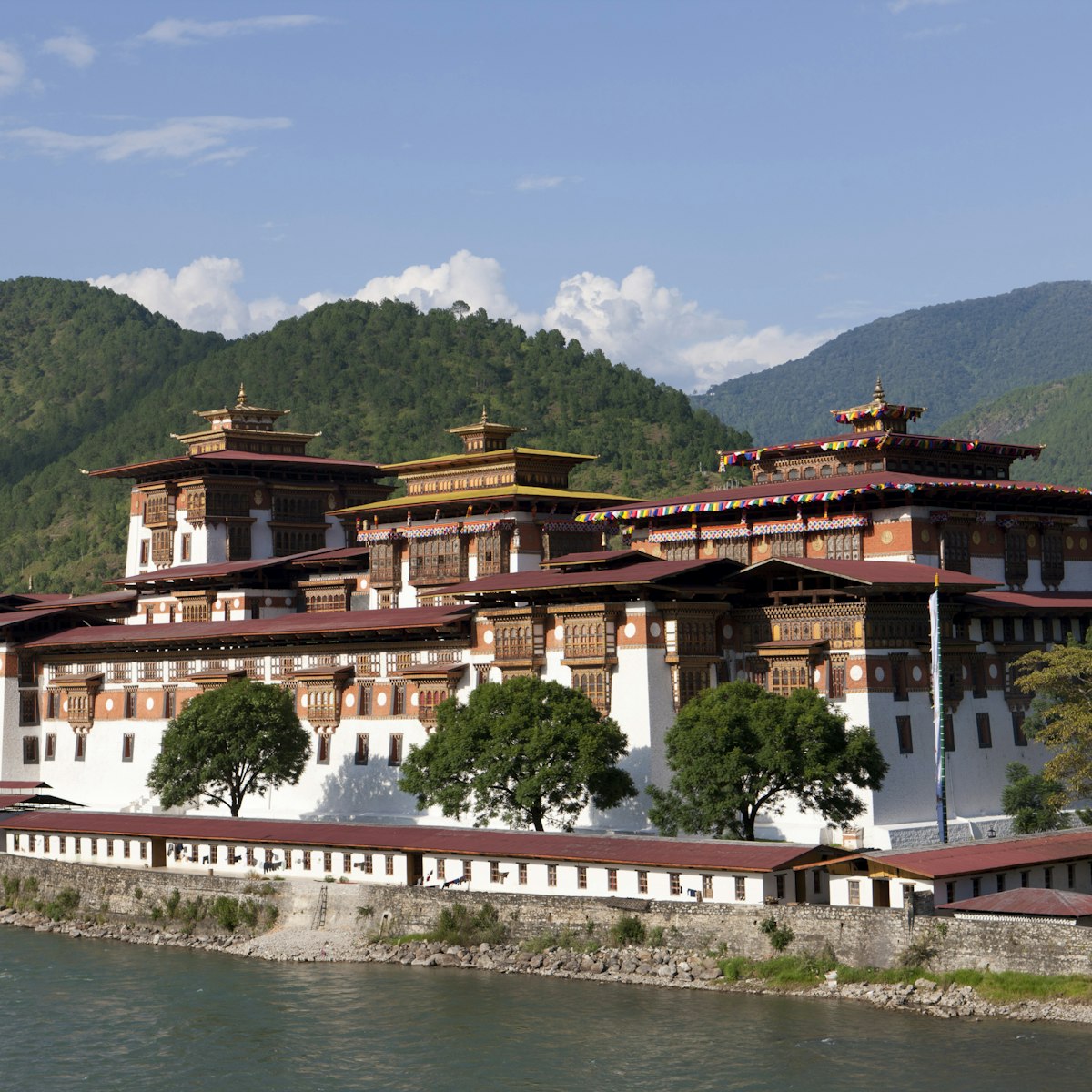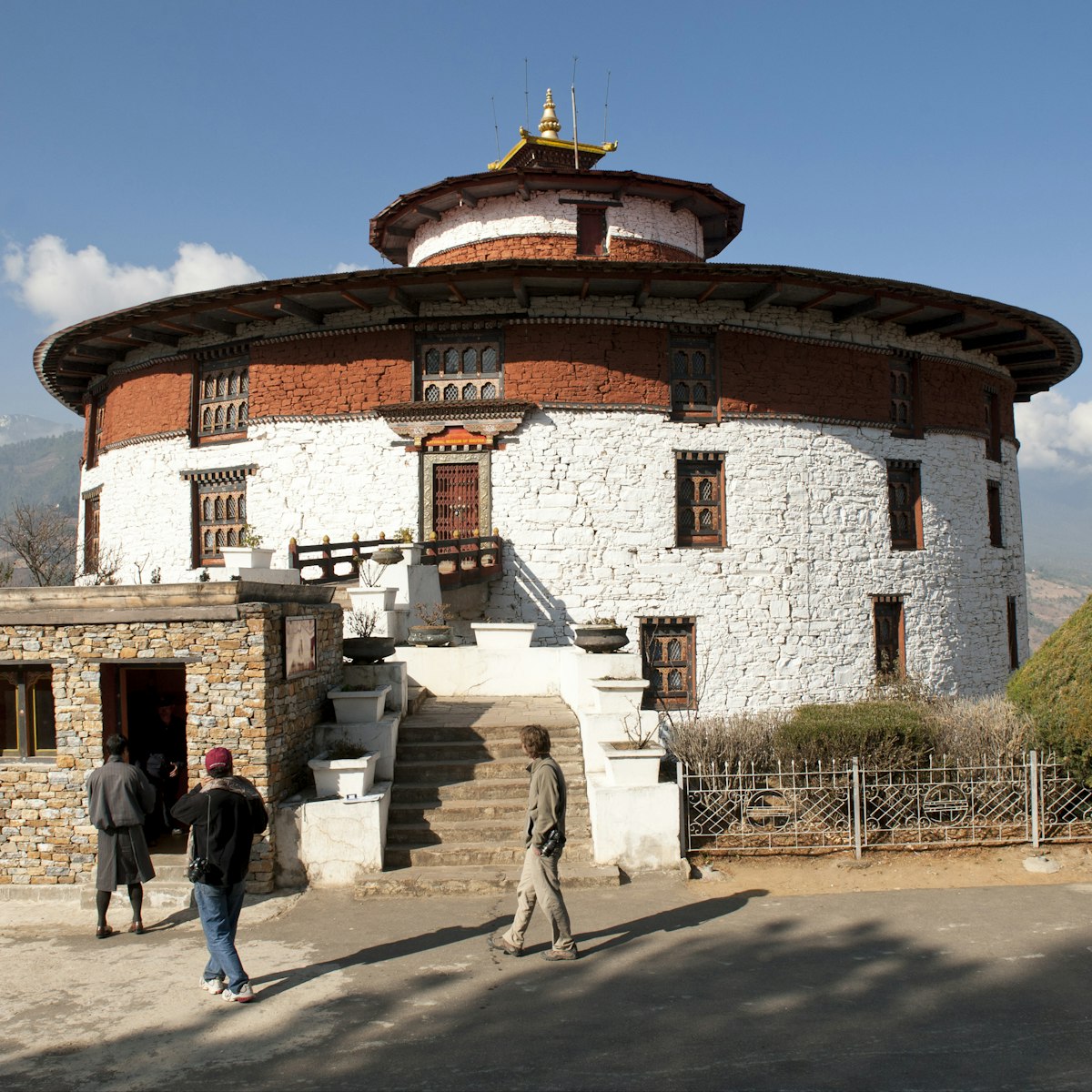Tango is the residence of Gyalse Rinpoche, recognised as the seventh reincarnation of Gyalse Tenzin Rabgye, founder of Taktshang Goemba. The original monastery was founded in the 12th century but it was the 'divine madman', Lama Drukpa Kunley, who built the present building in the 15th century. Notable for its striking curved frontage, Tango is part of an important university of Buddhist studies – the main campus is down in the valley and monks trek back and forth between the two throughout the day.
In 1616 Zhabdrung Ngawang Namgyal visited Tango and meditated in a nearby cave, and the head lama made a gift of the entire complex. In gratitude, the Zhabdrung carved a sandalwood statue of Chenresig, which he installed in the monastery. Because of its connections to the Zhabdrung, Tango is a popular place to visit during the memorial of his death in April or May, known as the Zhabdrung Kuchoe.
Once you reach the main three-storey goemba there are several chapels to visit, including the 3rd-floor zimchung (living quarters) of the fourth Druk Desi, where you can receive a blessing from his walking stick. The timbers of the surrounding compound are adorned with fine carvings of the Buddhist eight auspicious signs. Restoration work is ongoing at the goemba, using materials hauled up from the bottom of the valley on an old-fashioned cableway.
The trail from the car park climbs 280m and takes about 40 minutes if you follow the steeper direct trail, or about an hour if you take the longer, more gradual trail. En route you'll pass Buddhist quotes to inspire you on the spiritual path.
As you climb to the monastery take the left branch to first visit the meditation cave of the Zhabdrung (Tandin Ney) on a rock outcrop looking out over the valley. Tango gets its name (it translates to 'horse head') from the natural shape of this rocky protrusion. A small chapel enshrines a large crystal that was carried from Tibet and is used in visualisation meditations.






